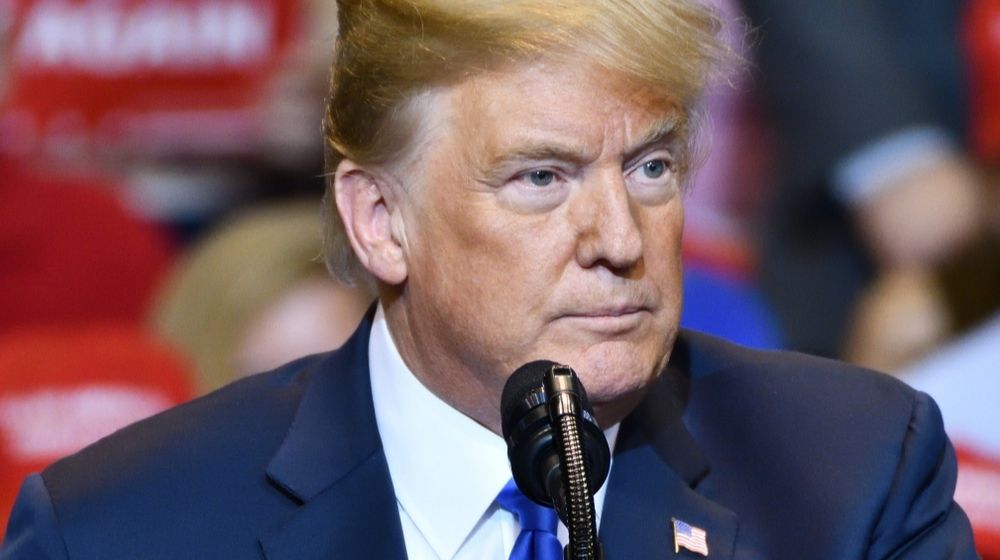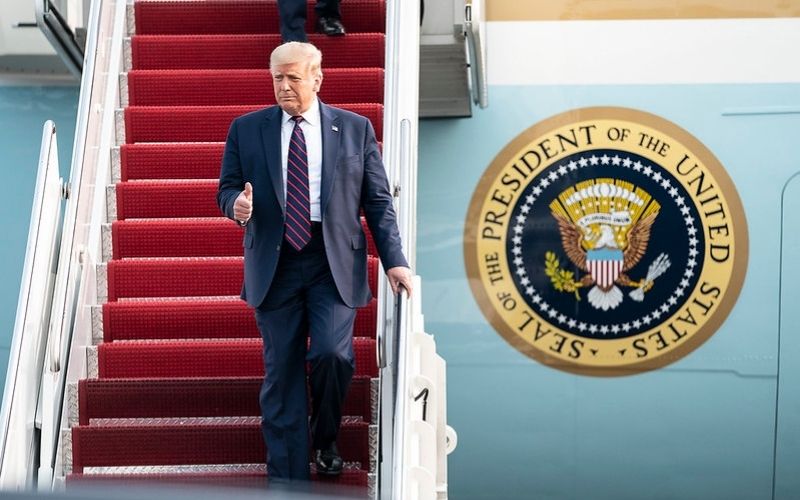Politics
Trump Strong On The Economy

Joe Biden is running on his record in the Obama Administration of staging a turnaround after an economic crisis, and last week we reminded readers there's less to that record than the spin. Conversely, there's more to President Trump's economic achievements in his first three years than his detractors admit, and this debate is crucial to how well the economy recovers after Covid-19.
Mr. Biden and the economic left claim Mr. Trump inherited a long expansion, and nothing much changed. But recall that Mr. Trump was able to win in 2016 in part by running against the “secular stagnation” that liberals said was inevitable. The Obama-Biden recovery was the slowest in decades, and by the second half of 2015 it was losing steam and came close to a recession in 2016.
Mr. Trump promised to spur growth again, and his win immediately revived animal spirits. The NFIB Small Business Optimism Index, which had languished below 100 for all but one month of President Obama's tenure, jumped 10 points to nearly 106 in December 2016. The OECD's Business Confidence Index showed a similar flip from pessimism through most of 2015 and 2016 into growing optimism. The University of Michigan's consumer confidence survey quickly exceeded its Obama-era high.
In its first two years, Mr. Trump pursued two major policy shifts. Instead of raising taxes as Obama-Biden did, he cut them. The 2017 Tax Cuts and Jobs Act passed by a GOP Congress restored global competitiveness to the U.S. corporate tax code, years after even European governments cut their marginal rates. Rationalizing taxation of overseas profits encouraged companies to repatriate foreign earnings to fund investment, increase wages, or return to shareholders for other uses.
Tax reform also encouraged business investment by allowing immediate 100% expensing of capital spending. The result of these measures was a capex surge, with job creation and productivity gains in its wake.
The other track was deregulation. The Administration eased restrictions on new energy pipelines, opened new areas to exploration, and rationalized emissions rules in the energy industry. This spurred a boom in gas and oil production. America is now a net exporter of petroleum products, allowing Washington new freedom to advance American interests in the Middle East and elsewhere.
The Trump Administration also freed banks of the more pointless elements of post-2008 regulation, such as investigations into racial discrimination in auto lending based solely on borrowers' last names. And wouldn't you know, the financial system still looks set to survive the Covid-19 shutdown. Republicans killed another 16 Obama-era rules through the Congressional Review Act.

These policies delivered what they promised, which was a burst of growth. From the end of 2017 through September 2018 the economy grew by more than 3%.
Work also increased. The unemployment rate fell to 3.5% by September 2019. Many liberal economists had assumed the 4.7% unemployment of November 2016 was a floor. More impressive, this rate declined even as the number of people working increased. Labor participation among the prime working-age population increased to 83.1% as of January this year, a rate not seen since 2008. Participation among working-age men exceeded 89% in early 2018 for the first time since 2010.
Wage growth, adjusted for inflation, accelerated after years of stagnation. The improvement was especially pronounced among low-skilled and minority workers left behind by the Obama economy. Median weekly full-time earnings for blacks increased 19% in Mr. Trump's first three years, to $806. That followed a period of 11% growth during Mr. Obama's seven post-recession years in office.
The Obama-Biden policy mix of easy monetary policy, higher taxes and hyperregulation skewed economic gains toward highly educated workers in industries such as tech and finance at the expense of other workers; toward asset owners at the expense of labor income; and toward larger companies at the expense of smaller. These inequities began to unwind under the Trump Administration.
It's easy to forget this record after the hell millions of Americans have suffered in recent months, and Democrats hope you do. Never before has a government suddenly shut down an entire economy, and Mr. Trump shares the blame. At least he soon reversed course and urged a reopening, while Mr. Biden still says he might lock the country down again.
Amid the Covid nightmare, Mr. Trump has also gone along with Speaker Nancy Pelosi's demands for Keynesian income supports for individuals to survive the shutdown. But income transfers are no more than a palliative, and the deficits and debt will hang over the economy for decades.
The issue for the election is which candidate and party can best lead America to a sustained post-Covid expansion. Both will rely too much on easy monetary policy. But Mr. Biden would return to the Obama-Biden policy mix, with a Bernie Sanders lurch left: Much higher taxes, much more regulation, trillions in more spending with perhaps a little less protectionism.
Mr. Trump is no free-marketeer, but he'll try to make his tax cuts permanent, block further regulation, and wouldn't nationalize health care or the energy industry. He prefers faster growth to raise wages instead of income transfers or welfare. If voters look past the ravages of Covid-19, Mr. Trump has the better case.
An editorial from the Wall Street Journal.
© Copyright © 2020, Highlands News-Sun, All Rights Reserved.
UP NEXT:
